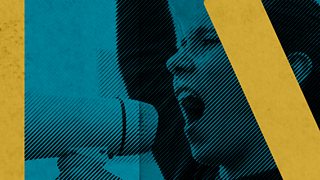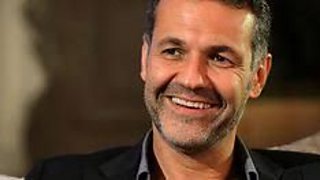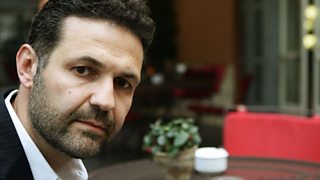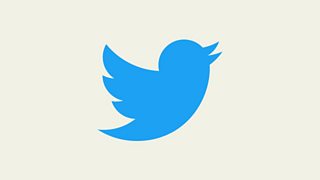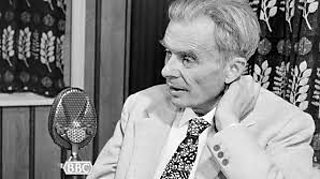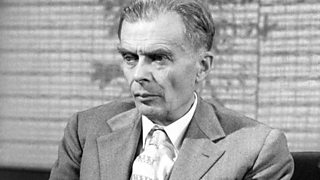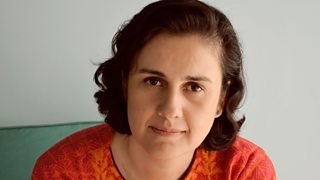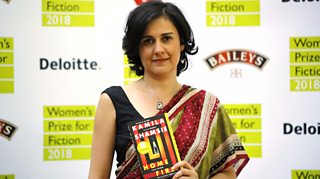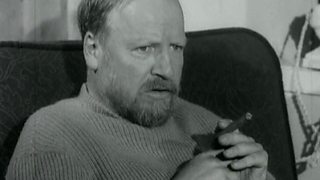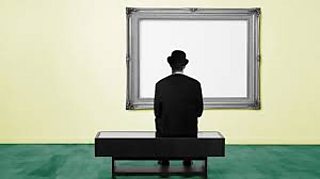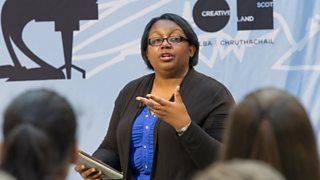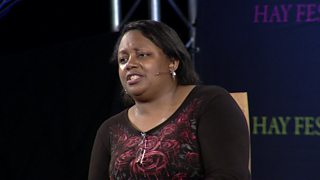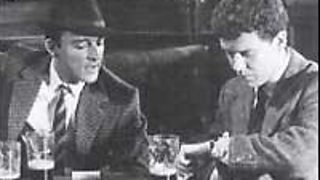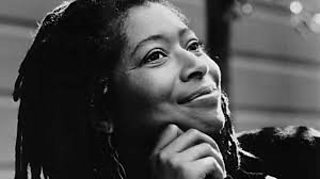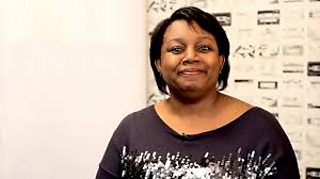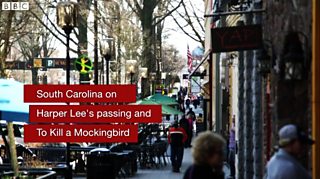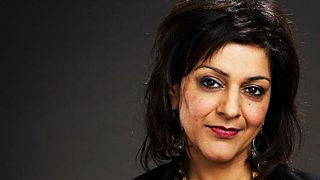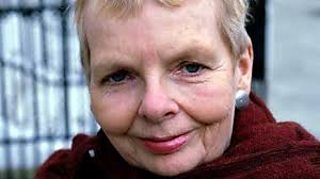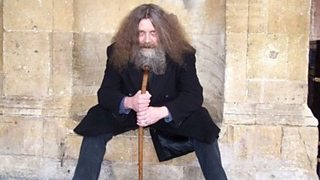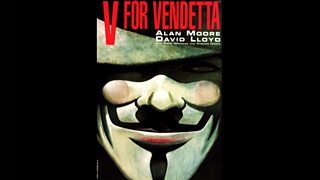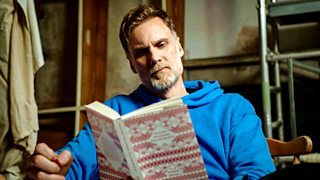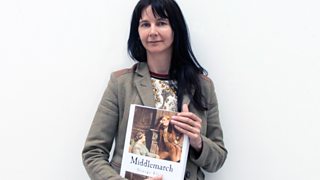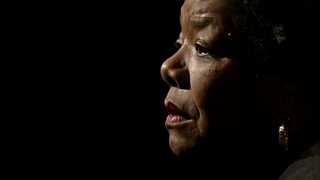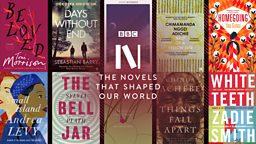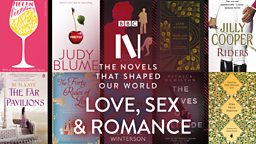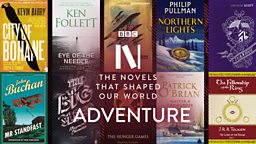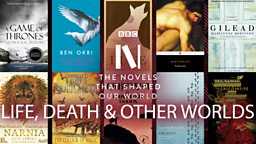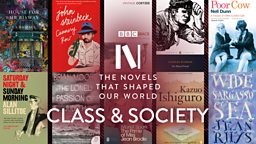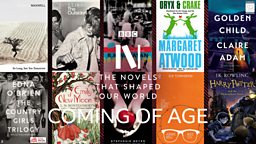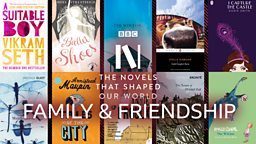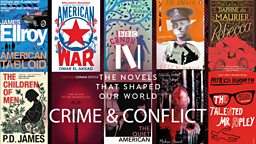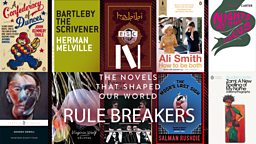Making a protest: Ten political novels to challenge your views
The Politics Power & Protest novels are stories about the ideas, people and power struggles that shaped worlds. Many feature characters with ideas out of step with their societies, from Atticus Finch's attitudes to class and race in To Kill A Mockingbird to Bernard Marx's dissatisfaction with the world order in Brave New World.
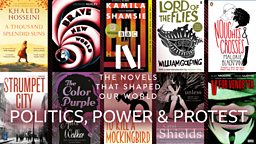
The panel have chosen these novels on the theme of Politics, Power and Protest:
A Thousands Splendid Suns by Khaled Hosseini; Brave New World by Aldous Huxley; ���˿��� Fire by Kamila Shamsie; Lord of the Flies by William Golding; Noughts & Crosses by Malorie Blackman; Strumpet City by James Plunkett; The Color Purple by Alice Walker; To Kill a Mockingbird by Harper Lee; Unless by Carol Shields; V for Vendetta by Alan Moore.
The Novels Survey
-
![]()
Help us complete the largest ever survey of English language novels and get personalised book recommendations.

A Thousand Splendid Suns by Khaled Hosseini, 2007
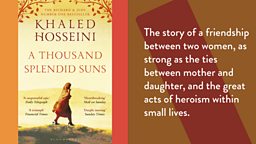
The story follows the intertwining lives of Mariam and Laila, two women from very different backgrounds thrown together through fate and circumstance. Against a backdrop of war and the rise of the Taliban in Kabul, we witness their fight for survival in a fast-changing world, barely recognisable from the one of their childhood. This is a story of identity, humanity and the bonds of family and friendship.
Book Club Questions
1. Hosseini dedicates his novel to the women of Afghanistan. How does he portray the female characters in the story, and how are women represented more generally as members of Afghan society?
2. The book has been described by the author as ‘a love story’. Do you agree? If so, what types of love are shown in the story?
3. Did reading the novel change your perceptions of Afghanistan and its people?
-
![]()
LISTEN: Khaled Hosseini talks to Mariella Frostrup
In an extended Open Book interview from 2007, Mariella Frostrup talked to Khaled Hosseini shortly after the publication of A Thousand Splendid Suns.
-
![]()
LISTEN: Actress Frances Barber chooses A Thousand Splendid Suns
Frances Barber joins Grace Dent on A Good Read, where she discusses her admiration for Khaled Hosseini's novel.
The two main female characters... were kind of inspired by my collective sense of what women in Afghanistan went through, particularly since the withdrawal of the Soviets and the breakout of anarchy and extremism and criminality.Khaled Hosseini, Time, 2008
Get Involved

Brave New World by Aldous Huxley, 1932
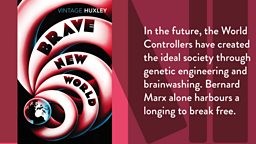
The novel imagines a futuristic society where the totalitarian World State rules through biotechnology, a rigid social order, and endless consumption. Though happiness has been widely available as a recreational drug, protagonist Bernard Marx, an “Alpha”, remains dissatisfied.
Book Club Questions
1. The state in Brave New World attempts to give everyone access to happiness, entertainment, sex and a vocation. Do you think utopian intentions ultimately create a dystopia?
2. Mond tells Bernard that exile is a reward. Would you rather live in exile or as part of mainstream society within the World State?
3. How does state-controlled reproduction shift the agency of women in the novel? Do you think women have more or less power in Brave New World than they do now?
-
![]()
READ & LISTEN: Sex, Drugs and Aldous Huxley
Radio 4's Dangerous Visions explores the author behind dystopian classic Brave New World.
-
![]()
WATCH: Aldous Huxley on the art of writing
Monitor host John Lehmann speaks to the novelist and essayist Aldous Huxley.
Brave New World was a far shrewder guess at the likely shape of a future tyranny than Orwell’s vision of Stalinist terror... 1984 has never really arrived, but Brave New World is around us everywhere.JG Ballard, 2002
Get Involved

���˿��� Fire by Kamila Shamsie, 2017
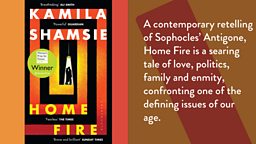
A contemporary reimagining of Sophocles’ Antigone, set among British Muslims. ���˿��� Fire follows the story of twin siblings Aneeka and Parvaiz, and their older sister Isma. When Parvaiz follows their father’s jihadi legacy, his sisters set out to bring him home while dealing with their own life issues.
Book Club Questions
1. The book is based on the Ancient Greek play Antigone by Sophocles. Do you think adaptations of older stories can be relevant for discussing contemporary issues?
2. In what ways does politics affect the personal, intimate lives of the characters in the novel?
3. How does the book portray expectations of masculinity? How are each of the male characters expected to behave in their families, jobs and communities, especially towards women?
-
![]()
LISTEN: Discovering Greek Myths with Kamila Shamsie
A voyage around Greek writing both ancient and modern, as Kamila Shamsie talks to Mariella Frostrup about ���˿��� Fire.
-
![]()
LISTEN: Kamila Shamsie reflects on ���˿��� Fire's themes
Shamsie is interviewed about her seventh novel, ���˿��� Fire, after receiving the Women's Prize for Fiction.
I believe in the notion of being a good citizen, which means you follow the laws unless, as in the case of Antigone, they're very unjust laws and then you take part in civil disobedience and non-violent protest.Kamila Shamsie
Get Involved

Lord of the Flies by William Golding, 1954
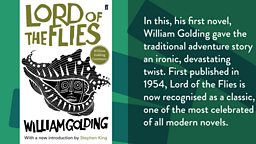
When a group of schoolboys are stranded on a desert island following a plane crash, they must learn to survive and escape from the threat of a savage beast. Soon, their childhood innocence disappears as the boys fight over power, showing us how quickly society slips into chaos when rules and order have been abandoned.
Book Club Questions
1. What differences are there between the boys? How do they each try to manage their situation?
2. The novel shows what happens when there are no rules, and the devastation that can occur. What does this make you think about our society, and the laws and rules that govern us?
3. What does the beast represent, and does it have parallels in our world?
-
![]()
WATCH: William Golding interviewed while still a teacher in Salisbury
William Golding was interviewed for Monitor in 1959, shortly after the publication of his fourth novel, Free Fall.
-
![]()
LISTEN: Literary Pursuits: Lord of the Flies
Golding's classic novel was saved from rejection by Faber courtesy of the luckiest chance.
I spent 10 years imitating other writers, then I realised that I was merely writing other people's novels rather than my own. It wasn't until I was 37 that I grasped the great truth, that you have to write your own books.William Golding, 1959
Get Involved

Noughts & Crosses by Malorie Blackman, 2001
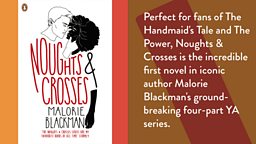
Sephy and Callum have been best friends since childhood. But as their friendship blossoms into love, they face one big problem- Callum is a Nought (a ‘colourless’ member of the underclass) while Sephy is a Cross (the dark-skinned ruling class). Their pursuit of love and a better future leads them to a near impossible task: changing the world. Will they succeed?
Book Club Questions
1. The novel is set is in an alternate universe where the Aprican Empire rules the nation of Albion (Britain). How does this world mirror our own and did it give you a different perspective on the world we live in?
2. In a new foreword, Malorie Blackman says ‘Noughts & Crosses wasn’t so much a book I wanted to write as a book I needed to write.’ What does this statement say about her motivation for writing the book, and what does it say about the purpose and power of books and fiction?
3. Why do you think the author chose the language of the game Noughts and Crosses for this story?
-
![]()
WATCH: Malorie Blackman reads from Noughts and Crosses
The author reads an extract from her powerful novel.
-
![]()
WATCH: Malorie Blackman's life lesson
From the Hay Festival in 2016, the author’s advice on handling people who tell you, ‘you can’t’.
When I get an idea for a story, I tend to get the general plot in my head first, but for me, the characters make or break a story.Malorie Blackman
Get Involved

Strumpet City by James Plunkett, 1969
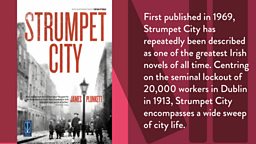
Through social realism and detailed historical fiction, Strumpet City offers a sweeping insight into the intertwined lives and struggles of the people of Dublin. Centring on the period surrounding the 1913 Dublin Lockout, the novel’s carefully crafted characters span the social strata from the most destitute to the ‘respectable working class’ to upper echelons of the wealthy.
Book Club Questions
1. What does Strumpet City reveal about wealth inequality and class expectations?
2. How does the novel portray Dublin as a city in conflict?
3. How would you characterise the three priests’ (Father O’Connor, Father Giffley, and Father O’Sullivan) differing understandings of the role of religion and the Church in their own lives as well as for the people of Dublin?
-
![]()
The ���˿��� News obituary from 2003. Image shows a still from an RTE adaptation of Strumpet City.
Strumpet City's defining characteristic is its humanity. It is driven by Plunkett's empathy for the suffering poor of Dublin's slums, but those characters do not have a monopoly on suffering.Colin Murphy in the Irish Times, 2013
Get Involved

The Color Purple by Alice Walker, 1982
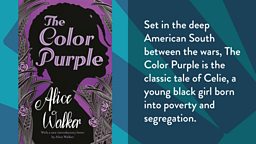
Alice Walker’s classic of American literature follows the life of Celie, an African American woman living in poverty in 1930s rural Georgia, and the women in her life. Written in the form of letters, from Celie to God and between Celie and her sister Nettie, The Colour Purple explores the depths of this group of women’s pain and struggles to reveal their resilience and the strength found in companionship.
Book Club Questions
1. How does the novel use letters to give the reader a deeper insight into Celie’s experiences, emotions and development of self?
2. In what ways do the women of The Colour Purple experience ‘double oppression’, rooted in both racism and sexism?
3. How far are Celie, Nettie, Shug and Sofia able to resist or fight back against the oppression and abuse they experience?
-
![]()
LISTEN: Alice Walker discusses The Color Purple
Iconic African-American writer Alice Walker on her Pulitzer Prize-winning novel The Color Purple.
-
![]()
LISTEN: Malorie Blackman selects The Color Purple as The Book That Changed My Life
Malorie Blackman discusses how Alice Walker's novel legitimised her ambition to be a writer.
Reading Alice Walker's book in my early 20s blasted open a door which I'd thought was locked and barred to me. Actually, it blasted open a door I didn't even appreciate existed - a door that could lead to a writing career of my own.Malorie Blackman, 2014
Get Involved

To Kill a Mockingbird by Harper Lee,l 1960
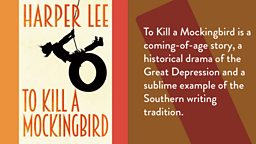
A community in 1930s Alabama reacts to the trial of a black man charged with raping a white woman. Through the eyes of young Scout and her brother Jem, we see how this event, and the engrained attitudes and behaviours of their neighbours, shapes their lives and their own understanding of race and prejudice.
Book Club Questions
1. Maycomb is a small town where residents know the family history of their neighbours. What types of prejudices are displayed by the characters? How have attitudes changed?
2. Jem and Scout are bright, bold and inquisitive children. Why do you think Harper Lee tells the story through the eyes of children?
3. Atticus Finch is a loving father and honourable lawyer. What do his children learn from him about fairness and prejudice?
-
![]()
WATCH: What does To Kill A Mockingbird mean to readers in South Carolina?
Following the death of author Harper Lee, ���˿��� News asked the people of South Carolina what the author and her seminal novel To Kill A Mockingbird meant to them.
-
![]()
LISTEN: Meera Syal, Lee Child, and Gregory Peck on To Kill A Mockingbird
A collection of personal insights: author and comedian Meera Syal; Lee Child reflects on the dark themes permeating the book; Gregory Peck talks in 1989 about playing Atticus Finch in the Oscar-winning film adaptation.
It's shot through with injustice... everything is bad. It's a very bleak and noir situation. I think what Harper Lee was doing was criticising that entire Southern 1930s culture, and she's saying 'It's all got to go'.Author Lee Child, 2010
Get Involved

Unless by Carol Shields, 2002
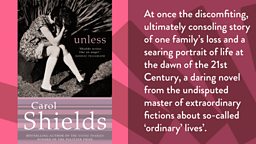
Reta Winters has a contented life with her family and friends. She is a successful translator and budding author. Then one day, completely out of character, her eldest daughter suddenly abandons university to sit on a street corner wearing a sign that reads ‘goodness’. Narrated by Reta, Unless is her frank, touching and sometimes amusing struggle to comprehend why her daughter has withdrawn from the world.
Book Club Questions
1. Goodness is mentioned throughout the book, but what do you think "goodness" means to Reta and to Norah?
2. What is the significance of the various letters that Reta writes but never sends?
3. Reta is compelled to find the perfect scarf for Norah – why do you think this might be?
-
![]()
LISTEN: Carol Shields talks to readers with James Naughtie
Pulitzer Prize-winner and Booker nominee Carol Shields discusses her work with Bookclub presenter James Naughtie and a group of readers.
Endings are never really endings. They're just there for the shape of the book.Carol Shields
Get Involved

V for Vendetta by Alan Moore, 1982-89
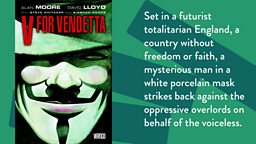
An anonymous crusader starts a campaign of terror in a futuristic world where, following a nuclear war, fascism, surveillance and totalitarianism rule England. This masked revolutionary has escaped from a concentration camp and is on a crusade to bring the homophobic, fascist government to the brink. He meets a young woman, Evey, and she becomes his comrade in anarchy.
Book Club Questions
1. Did you read this graphic novel differently to how you would read a regular novel? Did the illustrations bring the story more to life?
2. Is a ‘V’ a freedom fighter or a terrorist? What are the differences in those two definitions?
3. This novel was started in 1981 and set in a totalitarian England of 1997 where everyone is under surveillance. What resonances are there for today’s society?
-
![]()
LISTEN: Comedian Stewart Lee Interviews Alan Moore
The dry comedian and the acclaimed comic-book writer talk for Chain Reaction, the tag talk show where this week's guest is next week's interviewer.
-
![]()
WATCH: V for Vendetta and the mask of protest
Graphic artist David Lloyd talks about how his V for Vendetta mask became a symbol of global protest.
I’m not sure how much real, articulate dissent the contemporary internet is capable of fostering. Still, it’s with us and clearly isn’t going away. It’s my hope that an alternative culture could emerge that is not so completely in thrall to the internet.Alan Moore
Get Involved

Book club questions on Politics, Power and Protest
To round off our 10 novels in the Politics, Power and Protest theme, here are five stimulating questions to ponder. And below, to continue exploring, try our further reading suggestions.
1. How do you think that novels about politics can reflect our own world, particularly when they use fictional realities?
2. Many novels addressing political issues are set in a dystopia. How do you think that dystopian literature can comment on our world?
3. Race, class and gender are among the many common themes in novels, often focusing on key moments in history. Why do you think novelists choose to write about these topics?
4. Can fiction inspire people to protest the status quo in the same way non-fiction can?
5. What political issues from your own lifetime have you seen represented in novels, or what would you like to see?
More novels exploring Politics, Power and Protest
The Handmaid’s Tale by Margaret Atwood
Fahrenheit 451 by Ray Bradbury
Animal Farm by George Orwell
The Plot Against America by Philip Roth
The Help by Kathryn Stockett

The Novels Survey
-
![]()
Help us complete the largest ever survey of English language novels and get personalised book recommendations.

- Produced with support from
- Most of the books on the Novels 100 list are available in various formats from the .

- Novels That Shaped Our World is run in partnership with and is supported by .
Get Involved
-
![]()
Share the book you love on Twitter
-
![]()
Tell us about the novels you love on Facebook
-
![]()
Show us a book (or books) you love using the hashtag #mybooklife
Brilliant books content on ���˿��� iPlayer
-
![]()
Novels That Shaped Our World
Looking at class in all its shapes and sizes, from all sides of the class divide, in the UK, USA and India
-
![]()
Everything Is Connected - George Eliot's Life
Gillian Wearing's experimental film, made up of a diverse cast of people, celebrate the legacy of the Victorian author
-
![]()
Face to Face: Maya Angelou
In this classic interview from 1994, Jeremy Isaacs talks to Maya Angelou about her life, her writing and her hopes for the future
